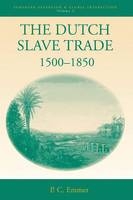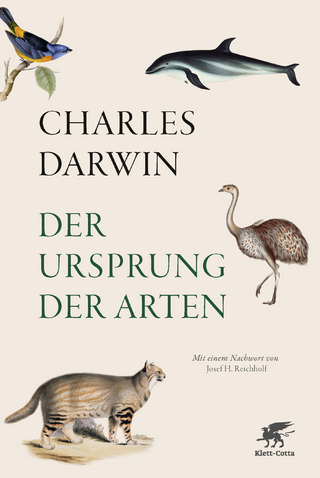
The Dutch Slave Trade, 1500-1850
Berghahn Books (Verlag)
978-1-84545-031-1 (ISBN)
Dutch historiography has traditionally concentrated on colonial successes in Asia. However, the Dutch were also active in West Africa, Brazil, New Netherland (the present state of New York) and in the Caribbean. In Africa they took part in the gold and ivory trade and finally also in the slave trade, something not widely known outside academic circles. P.C. Emmer, one of the most prominent experts in this field, tells the story of Dutch involvement in the trade from the beginning of the 17th century–much later than the Spaniards and the Portuguese–and goes on to show how the trade shifted from Brazil to the Caribbean. He explains how the purchase of slaves was organized in Africa, records their dramatic transport across the Atlantic, and examines how the sales machinery worked. Drawing on his prolonged study of the Dutch Atlantic slave trade, he presents his subject clearly and soberly, although never forgetting the tragedy hidden behind the numbers – the dark side of the Dutch Golden Age -, which makes this study not only informative but also very readable.
Pieter C. Emmer is Professor of the History of the Expansion of Europe and the related migration movements at University of Leiden. He was a visiting fellow at Churchill College, Cambridge, UK (1978-79), at the Wissenschaftskolleg Berlin (2000-2001) and at the Netherlands Institute for Advanced Study (2002-2003), Wassenaar, The Netherlands. He served as visiting professor at the University of Texas at Austin (1986-87) and at the University of Hamburg, Germany (1996-97). Pieter Emmer is member of the Editorial Boards of the Journal of Imperial and Commonwealth History, Jahrbuch für die Geschichte Lateinamerikas, Studien zur historischen Migrationsforschung, Journal of Caribbean History, Itinerario and author of The Dutch in the Atlantic Economy, 1580-1880 (Aldershot, 1998) and co-editor of Migration, Integration, Minorities, a European Encyclopaedia to be published by Cambridge University Press. In 2004, he became a member of the Academia Europaea.
Foreword
Chapter 1. The Atlantic Slave Trade: Participate or Not? The Iberian Example
The Netherlands and the Slave Trade
To be Forgotten or Remembered?
The Greatest Crime against Humanity?
The Bridge between Slavery in the Old and the New World: the Portuguese
First against, Then in Favour
The Volte-Face in Dutch Ideology
The Slave Trade in Dutch Brazil
Chapter 2. Greedy Customers: Planters and Plantations in the New World
The English and French Caribbean
A Second Dutch ‘Brazil’?
The Dutch Antilles and the Slave Trade with South America
The Slave Trade to the Dutch Guyanas and the Ending of the WIC’s Monopoly
Chapter 3. The Slaving Voyage: Departure from the Netherlands and Trade on the African Coast
Preparing for a Slaving Voyage
Preparations for a Slaving Voyage
The Composition of the Cargo
Did European Goods Harm Africa?
On the African Coast: the Purchase of Slaves
The Demographic Costs of the Slave Trade for West Africa
Where Did the Slaves Come From?
Why Did Africa Let So Many Slaves Go?
Bosman and Equiano on the Slave Trade
Chapter 4. The Slaving Voyage: the Crossing from Africa to the West Indies
The Mortality
The Fight Against Death
Shipboard Mutinies
The Middle Passage According to Equiano
Arrival in the West Indies
The Sale of Slaves
Chapter 5. The West Indian Plantations and Their Insatiable Demand for Slaves
Why did the Plantations always Need More Slaves?
Insurgents and Runaways
From African to American?
Chapter 6. The Dutch Economy and the Slave Trade
Equiano’s Arrival in the West Indies
The Return Voyage to the Netherlands
Profit and Loss in the Dutch Slave Trade
The Economic Importance of the Dutch Slave Trade
The Cruellest Planters?
The Reputation of Suriname and the Dutch Slave Trade
Chapter 7. The Aftermath: the Abolition of the Dutch Slave Trade, The Illegal Slave Trade and the Transportation of Indentured Labourers from Asia
The Abolition of the Slave Trade
The Illegal Slave Trade
The Abolition of Slavery in the Dutch Colonies
Africa without the Slave Trade
Suriname without the Slave Trade
A New Slave Trade?
The Transportation of Asian Indentured Labourers to Suriname
Chapter 8. Morality and the Slave Trade: Debts of Honour
How Guilty is the Netherlands?
Right and Wrong in the History of the Dutch
Bibliography
Index
| Erscheint lt. Verlag | 15.1.2006 |
|---|---|
| Reihe/Serie | European Expansion & Global Interaction |
| Verlagsort | Oxford |
| Sprache | englisch |
| Maße | 152 x 229 mm |
| Gewicht | 363 g |
| Themenwelt | Geisteswissenschaften ► Geschichte |
| Naturwissenschaften ► Biologie ► Evolution | |
| ISBN-10 | 1-84545-031-0 / 1845450310 |
| ISBN-13 | 978-1-84545-031-1 / 9781845450311 |
| Zustand | Neuware |
| Haben Sie eine Frage zum Produkt? |
aus dem Bereich


